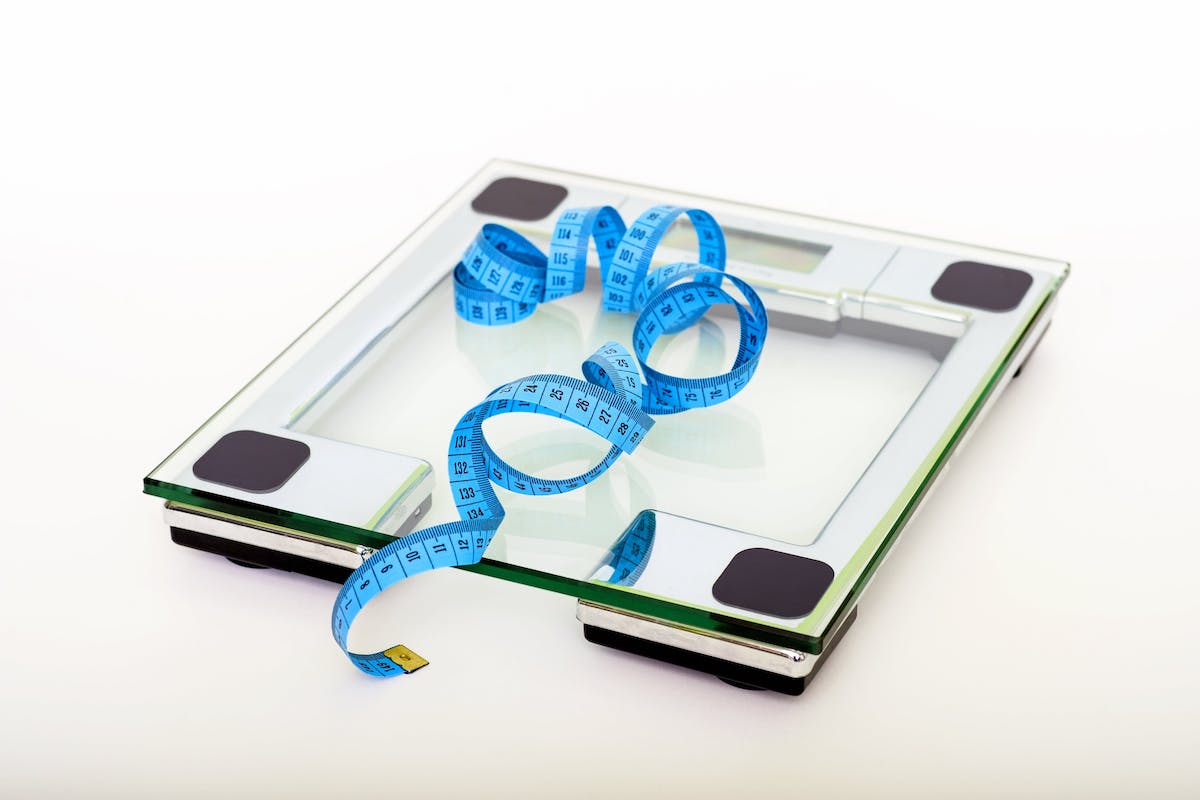
Weight loss made headline after headline in 2023 with the rise in popularity in GLP-1s like Wegovy. The drugs certainly have evidence to show effectiveness for losing weight in ways diet and exercise alone have not worked for some patients. Experts share maintaining a healthy weight (or getting to one) is essential.
“Weight maintenance/loss is important for overall health because it reduces the risk of insulin resistance and diabetes,” said Dr. Jared Braunstein, D.O., a board-certified internist with Medical Offices of Manhattan and contributor to Labfinder.com. “Also, obesity has been linked to heart disease and strokes.”
Though diet, exercise, and medication can help, what about mindfulness? Stress reduction is another oft-recommended part of a weight loss program; mindfulness can reduce stress. Can being more mindful, therefore, help you lose weight? Experts weighed in.

Is there a link between stress and weight?
Doctors and mental health professionals believe there is.
“I am a firm believer that our mental health and physical health run parallel with one another,” Adrine Davtyan, LCSW, said. “When our mental health is compromised, it impacts our physical health. Conversely, when our physical health suffers, our mental health may experience distress.”
Experts delved deeper into why increased stress may lead to fluctuations in weight.
Appetite changes
When you’re stressed, you may eat more (or less), affecting the number on the scale.
“Excess stress can lead to stressful over-eating, which can lead to weight gain,” Dr. Braunstein said. “Some people can get relief from stress by eating snacks and typically unhealthy foods.”
Sleep troubles
Stress can keep you up at night, and you may notice weight ticking up.
“Stress can negatively impact sleep, and lack of sufficient sleep, in turn, can result in increased eating, especially of carb-rich foods, as the body looks for quick sources of energy,” said Dr. Alex Dimitriu, MD, who is double board-certified in psychiatry and sleep medicine and the founder of Menlo Park Psychiatry & Sleep Medicine.
Visceral fat
Everyone feels stressed at some point, but chronic stress can lead to a hazardous kind of fat.
“When people experience continued stress, this can result in an increase in visceral fat, which is the fat around organs to the point of becoming dangerous to one’s health,” said psychiatrist Dr. Howard Pratt, D.O., the Medical Director at Community Health of South Florida, Inc. (CHI).
For instance, too much visceral fat increases a person’s risk of heart disease.

Does mindfulness work for weight loss?
Experts say that mindfulness can play a critical role in weight loss.
“Mindfulness absolutely can help with weight loss,” said Dr. Pratt.
Here’s why (and how)
Mindfulness keeps you present
Practicing mindfulness helps keep you in the “here and now,” Dr. Dimitriu said.
“This is especially helpful as people with anxiety tend to always be thinking about something else – often in the past or the future,” he said. “Bringing awareness to the moment can substantially improve anxiety.”
What does that have to do with weight?
“When we are aware of and present with these factors, we can avoid destructive behaviors, such as emotional eating,” Davtyan said. “The practice of mindfulness can help manage stress and promote a healthier relationship with feelings, body awareness, and food.”
Mindfulness helps you be kind to yourself
Another expert shared that mindfulness also allows people to give themselves grace.
“Mindfulness also helps with self-acceptance and self-compassion, so if you happen to give into a craving, you can accept it, forgive yourself, and move on,” said Holly Schiff, Psy.D., a licensed clinical psychologist with South County Psychiatry. “You identify your emotions rather than avoid them, but you accept them without judgment.”
What are three mindful eating tips?
Mindfulness isn’t merely meditation and yoga. Experts share you can make eating a mindful practice.
“Eating mindfully is also of tremendous benefit,” Dr. Dimitriu said.
Davtyan suggested:
- Eat with the senses. Focus on what you’re eating and turn meals into multi-sensory experiences. “Activate your senses by noticing the colors, textures, smells, and flavors of the food you are consuming,” Davtyan said. “This allows an individual to remain present by awakening their awareness.”
- Recognize hunger cues. Tune into yourself. “Listen to your body’s signals and eat when you are genuinely hungry,” Davtyan said. “This can help limit emotional eating.”
- Minimize distractions. You’ll have a more challenging time tuning into yourself if you’re also tuned into TikTok. Make meals a screen-free affair. “Minimize distractions like phones or T.V. while eating,” Davtyan said.
How do you get rid of stress-induced weight gain?
There’s no magic pill or solution to losing stress-related weight. Even mindfulness is helpful but should be considered one piece of a holistic approach. Dr. Braunstein said ways to get rid of stress-induced weight gain include:
- Exercising three to four times per week
- Getting seven to eight hours of sleep per night
- Drinking water
- Stress reduction
- Avoiding foods with high sugar content
Finally, try not to focus too hard on the number on the scale — doing so may exacerbate weight gain (and stress).
“I do not think it is healthy mentally to obsess over your weight on the scale on a daily basis,” Dr. Braunstein said. “Sometimes, obsessing over the number you see on a scale can cause more anxiety and hinder the progression of weight loss.”




